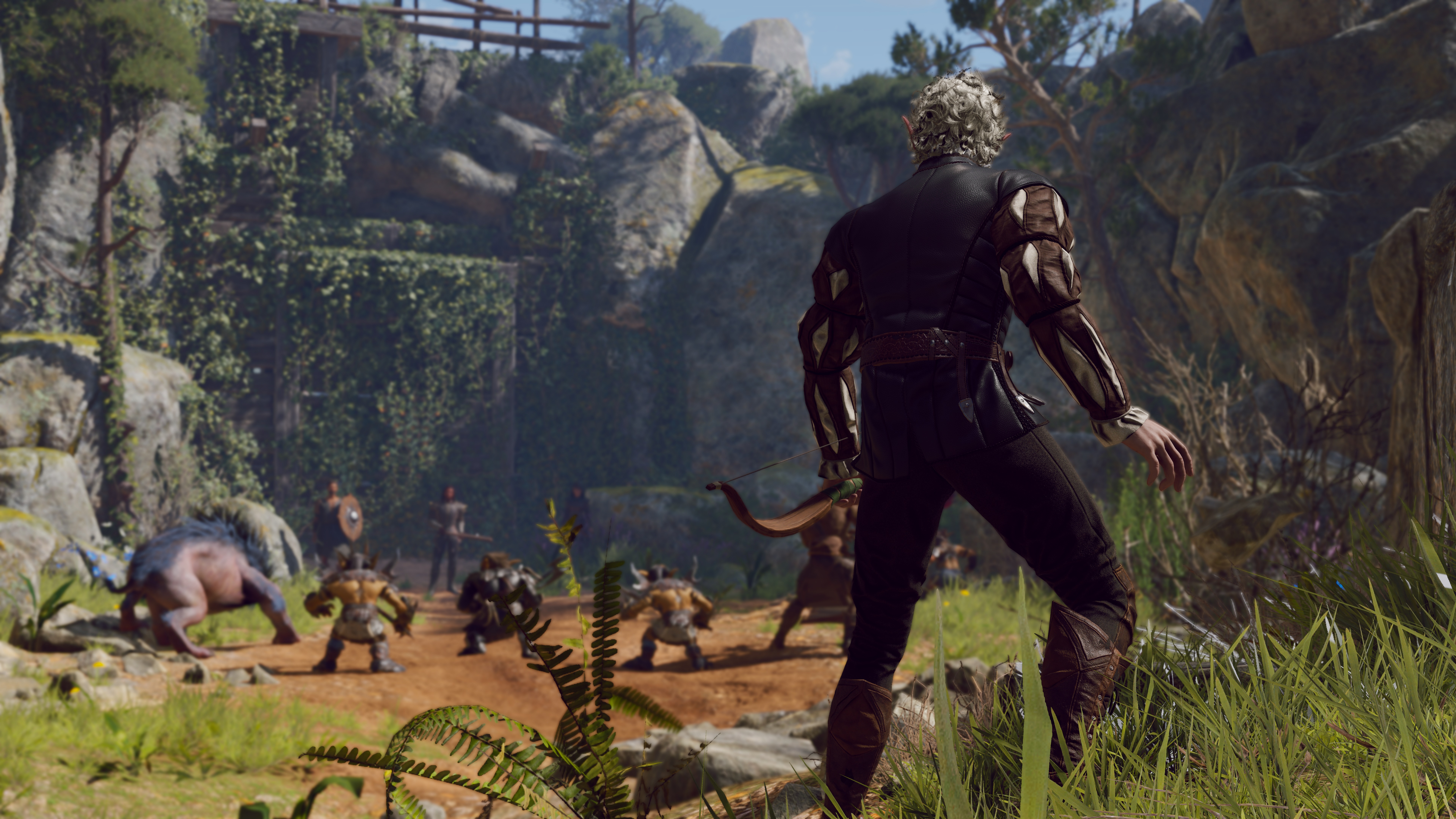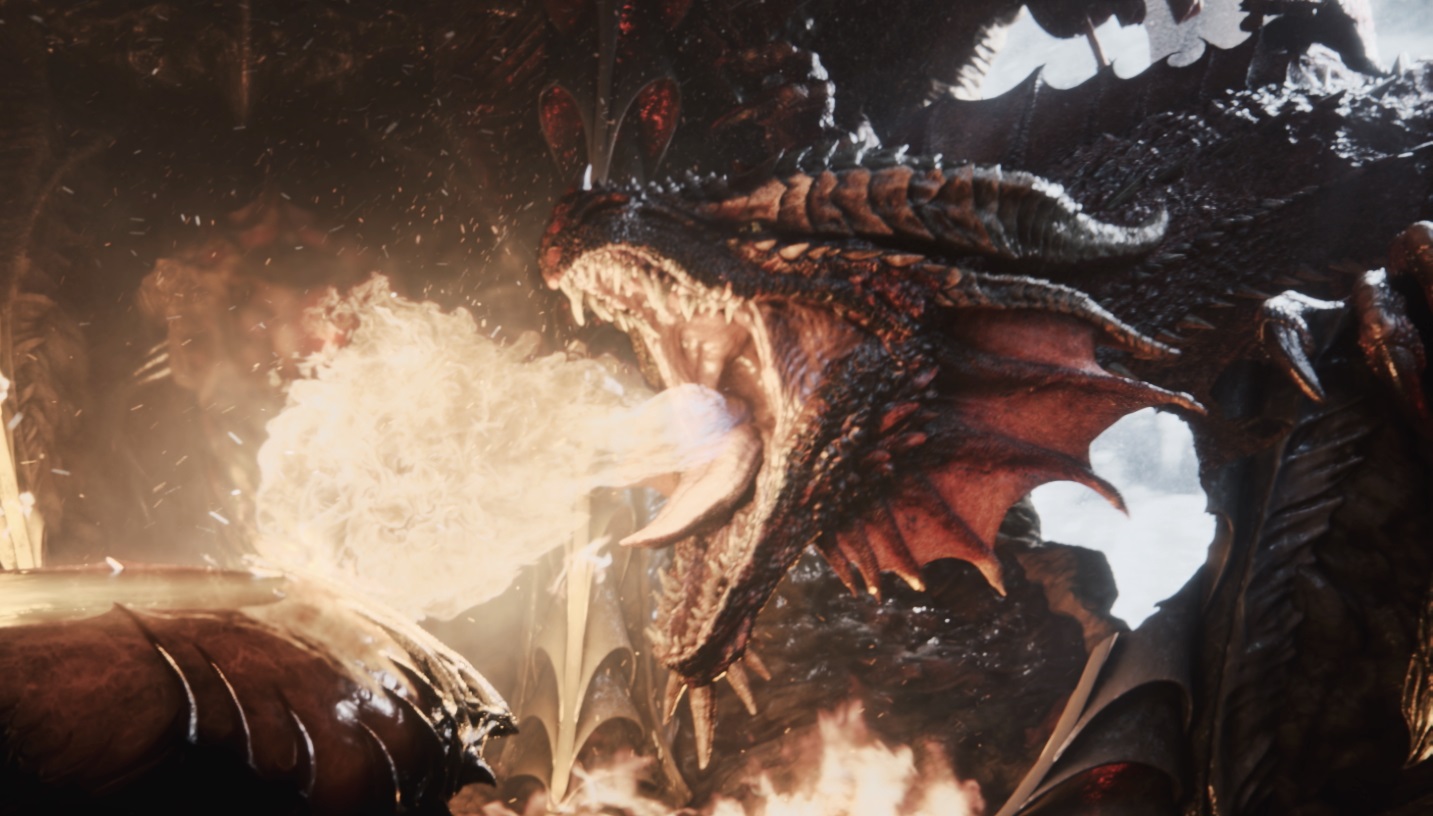Baldur's Gate 3's simultaneous turn-based combat is a blessing for multiplayer
Divinity: Original Sin 2 was a great co-op experience, but Baldur's Gate 3 looks like it'll be even better.
Some nights, my Divinity: Original Sin 2 co-op time was spent in a single fight. Trying to align the schedules of three adults to play any game, let alone a hundred-hour RPG, can feel like a minor miracle sometimes. But my friends and I were dedicated to finishing this game, even with a three-hour time difference (me in California, them on the east coast) limiting our potential play time. For about three months, we hopped into a Discord chat every night we could and quested our way through Original Sin 2. I'm excited to do the same for Baldur's Gate 3, and relieved that it probably won't take as long, this time.
Not because Baldur's Gate 3 is going to be a shorter RPG, though. I don't know how long it'll be compared to Original Sin 2, but Larian seems to be swinging for the fences, and I feel safe assuming it'll be a gigantic game. Larian is doing something a little different with the turn-based combat this time that should make all the difference.
In both the Divinity: Original Sin games, every character in a fight, friend or foe, gets a dedicated turn. This is tracked with a turn order timeline along the top of the screen, which does play into the combat strategy in some interesting ways. It lets you focus down and kill enemies who may have a turn coming up sooner, or hit them with attacks that delay when they'll get to move. I really like the layer of strategy this brings to combat. But the turn-order design also means that, in co-op play, you spend most of a fight doing nothing, just waiting for your turn.
And those fights can be long. Sometimes a dozen enemies get pulled into an encounter across a large area, so my friends and I would spend an hour tactically thinking our way through them. It was mostly fun, but still led to plenty of "Oh, it's my turn? Oops" moments that just added to the delay. I'm relieved that for Baldur's Gate 3, Larian came up with a speedier solution.
The new "simultaneous turn-based" system isn't exactly a revolutionary idea. You get a turn and move all your units, and then the enemy AI takes a turn, and so on. Plenty of turn-based games have used this setup over the years. But they're rarely multiplayer, which is why this is a big deal coming from Original Sin 2. In Baldur's Gate 3, all four co-op partners will be able to move their characters at the same time, take actions, then end the turn and let the AI get mean.

I'm psyched for the time saving this promises, but I also think it's going to make multiplayer more fun, too. In Divinity, my friends and I would occasionally reload when it felt like someone had picked a story path we didn't want to go down—Steven, you know what you did and you should still feel bad—but for the most part we rolled with whatever happened. In combat, we'd talk about who had the best ability to use with what enemy, and that coordination is going to be way more important in Baldur's Gate 3, when we can take our turns in any order.
Honestly, a lot of the fun of Larian's games is scrambling to find a solution when shit goes completely wrong. Simultaneous turn-based combat will taunt each of us to jump the gun and move too quickly before talking out a plan. Maddening mistakes in every fight? That's the stuff.
Keep up to date with the most important stories and the best deals, as picked by the PC Gamer team.
"It works really well in singleplayer but it works really, really well in multiplayer, because you're constantly discussing combos, and that was the thing we were looking for," says Larian founder Swen Vincke. I joked that implementing this sounded like a nightmare for the programmers, which got a smirking, "Yeah, they've been busy for some time already."
Vincke told me about a few other upgrades to the multiplayer system they've made since Original Sin 2. You'll now be able to see what choices your co-op partners are hovering over in dialogue scenes, so you can try to sway each other in the moment. Baldur's Gate 3 will, undoubtedly, be one of the best argument generators of the year.

Wes has been covering games and hardware for more than 10 years, first at tech sites like The Wirecutter and Tested before joining the PC Gamer team in 2014. Wes plays a little bit of everything, but he'll always jump at the chance to cover emulation and Japanese games.
When he's not obsessively optimizing and re-optimizing a tangle of conveyor belts in Satisfactory (it's really becoming a problem), he's probably playing a 20-year-old Final Fantasy or some opaque ASCII roguelike. With a focus on writing and editing features, he seeks out personal stories and in-depth histories from the corners of PC gaming and its niche communities. 50% pizza by volume (deep dish, to be specific).


